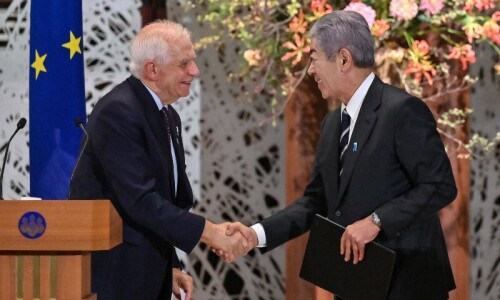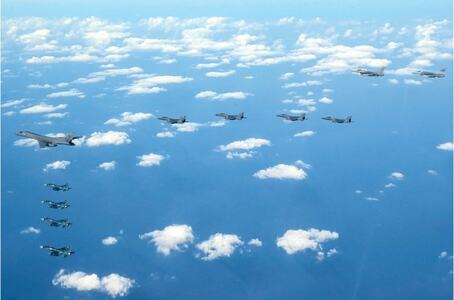South Korea and the United States have, for the first time, explicitly confirmed that cyber and space threats to either country could trigger mutual defence actions under their bilateral treaty signed in 1953, which forms the basis of their military alliance.
The commitment was outlined in a joint statement following the South Korea-US ‘2+2’ foreign and defence ministerial meeting held on Thursday in Washington, notably amid rising concerns over deepening security cooperation between Russia and North Korea, particularly in areas like cyber and outer space, including satellite technology transfers
“We also affirmed that attacks in space or cyberspace that clearly challenge the security of the alliance could lead us to invoke Article III of the Mutual Defence Treaty,” US Defence Secretary Lloyd Austin said during a joint news conference following the 2+ meeting — the first of its kind since March 2021. “So to improve our awareness of threats in the space and cyber domains, we’re enhancing our interoperability and information sharing.”
Article III stipulates a mutual defence commitment if either party within its jurisdiction is attacked, provided the other party deems the attack a threat to its own peace and safety and declares its intention to address the shared danger in accordance with its constitutional processes.
The joint statement clarified that international law applies to cyberspace and that, under certain circumstances, a cyberattack could be considered an armed attack under Article III. It also emphasized that attacks originating from, targeting, or occurring within space pose a significant threat to the security of the alliance and could trigger the invocation of Article III.
“Both sides affirmed that a decision as to when attacks in either domain would lead to an invocation of Article III would be made on a case-by-case basis, and through close consultations between the United States and the ROK, as would be the case for any other threat,” the statement read, referring to South Korea by the acronym of its official name.
Yang Uk, a research fellow at the Asan Institute for Policy Studies in Seoul, noted that the allies’ declarations are driven by the urgency of emerging security challenges, particularly in the cyber and outer space domains from North Korea and other authoritarian countries.
Published in Dawn, November 4th, 2024














































Dear visitor, the comments section is undergoing an overhaul and will return soon.